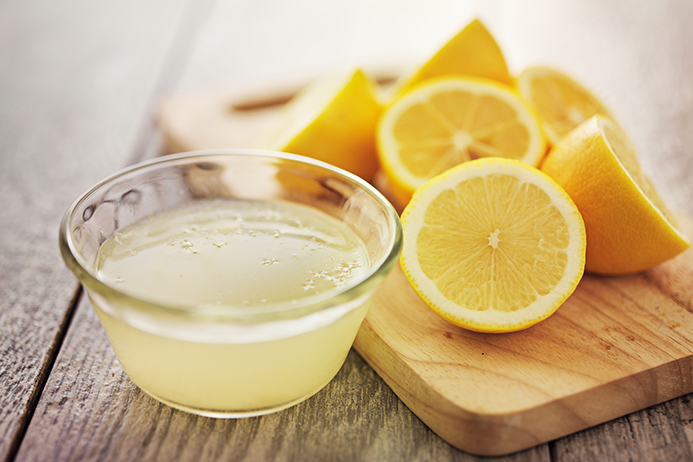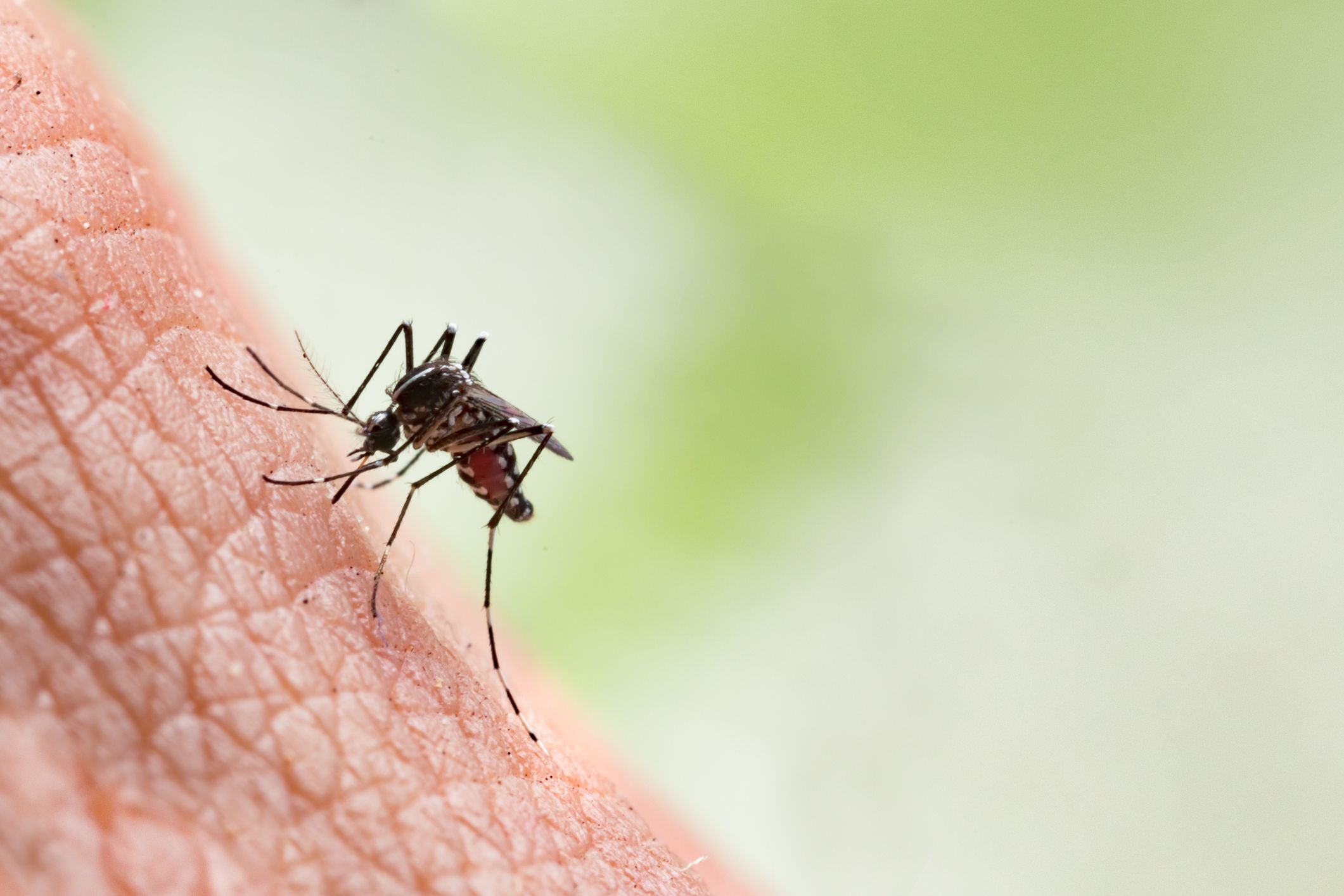Health
The Physical Toll of Anxiety – How It Affects Your Body and Mind

Everyone experiences anxiety occasionally, but chronic and persistent stress can affect your health in many ways. Anxiety can impact your nervous, cardiovascular, digestive and immune systems.
Some physical effects of anxiety include chest pain, headaches, sweating and more. These symptoms are caused by the body’s stress response to a threatening situation and can have severe consequences for your health.
Chest Pain
Several causes can bring on chest discomfort. Some are critical and potentially fatal, while others are not harmful but call for testing and care.
Often, chest pain is associated with heart problems like angina or heart attacks. These health issues can cause blood to slam into the chest, creating sharp, stabbing pains that may spread to other body parts.
Many people who experience this type of pain think it’s a sign of a heart attack and go to the emergency room for help.
But several people with these chest pains also have anxiety disorders or other mental health conditions.
This is why you must talk with your doctor if you have chest pain related to anxiety or another mental health issue. Your doctor will ask questions about where your chest pain is, what makes it better or worse, and how long it lasts. They’ll also do a physical exam to see if you have other symptoms.
Headaches
Headaches are the most common type of pain, with more than half of the population experiencing them at some point. They can vary significantly in pain type, severity, location and frequency.
The pain you feel during a headache is caused by specific nerves in blood vessels and head muscles sending signals to your brain. It isn’t clear how these signals are turned on in the first place, but they are most often triggered by illness and stress.
Doctors can diagnose headaches by doing a complete medical history, physical examination and neurological tests. They could suggest a neurologist or another expert to you.
Some people get headaches due to changes in hormone levels during their periods, pregnancy and menopause. The hormones from birth control pills and hormone replacement therapy can also trigger them.
If you have headaches that last longer than three days or are severe, you need to see a doctor. They can help you identify your headache triggers and prescribe medication. They can also help you learn ways to prevent future attacks so you don’t need to take painkillers.
Sweating
Sweating is regulated by the hypothalamus in your brain, as well as a series of nerves and ducts that stretch from head to toe. It is one of the physical symptoms of anxiety. The hypothalamus uses a combination of stimuli from hormones, environmental signals and circadian rhythms to send out the optimal sweat signal. Sweat is a natural bodily function that helps regulate your temperature. It’s also one of the most effective ways to keep your body hydrated, which is essential for nearly every organ’s health and well-being.
The amount of sweat your body produces depends on various factors, including your fitness level and age. Generally speaking, you will sweat more the more active you are.
For the most part, however, the best way to control your sweating is by making some lifestyle adjustments. For example, try to exercise regularly and drink plenty of water.
Digestive Issues
Everyone experiences digestive issues from time to time, such as stomachache, diarrhea or constipation. They can be unpleasant but usually resolve quickly. But, you must contact a doctor and be checked out if you frequently encounter these symptoms.
The gastrointestinal (GI) system is one of the body’s most intricate and extensive systems, stretching from your mouth to your rectum. It helps your body absorb essential nutrients and rid the body of waste.
Your GI system is also in direct communication with the brain. It sends signals to your mind through neurotransmitters like serotonin and dopamine.
Stress and anxiety can also affect your digestive system. For example, if you’re feeling anxious or depressed, your stomach might be upset, triggering heartburn or abdominal pain.
Fortunately, researchers are learning more about how the gut and the brain interact. And they’re finding ways to improve the physical toll of depression, anxiety and other mental health conditions that impact digestion.
Insomnia
Sleep deprivation is a common side effect of anxiety. While one night of poor sleep isn’t cause for concern, it can become a repetitive cycle that takes its toll over time.
Insomnia is a sleep disorder that affects your ability to fall asleep and stay asleep. Getting good sleep is essential, as studies show it helps improve mental performance and memory.
Make an appointment with your doctor to discover the cause of your insomnia and how to cure it if it doesn’t go away on its own. Your sleeping patterns and general living habits will be discussed with the doctor to determine whether they may contribute to the problem.
Along with doing standard screening exams for any health issues that could be causing your sleeplessness, the doctor will also listen to your heart and lungs.
The main emotional reasons for sleeplessness are stress, worry, and sadness. Nonetheless, everyday routines, sleeping patterns, and physical health are all important.
Health
15 good reasons to drink lemon juice in the morning on an empty stomach

Discover the 15 good reasons to drink lemon juice in the morning on an empty stomach.
Lemon is one of the most frequently and widely used citrus fruits.
Its popularity is due to its scent and refreshing taste.
Its aroma makes it an ingredient of choice in many recipes and the composition of perfumes.
It also accompanies a large number of drinks, including tea and cocktails, it can also be served as fruit juice.
Not only is lemon used for its aromatic qualities, but also its therapeutic dimension.
Rich in vitamin C, lemon indeed has formidable therapeutic virtues: its Antiviral and antibacterial properties as well as its ability to stimulate the immune system are widely recognized.
One of the most common ways to reap the benefits of lemon is by squeezing the juice.
Lemon juice stimulates digestion and has a detoxifying action.
It also promotes drainage of the liver and thus improves digestion.
By its ability to boost metabolism, lemon juice is an effective way to lose weight.
If you want to lose weight, drinking lemon juice in lukewarm water every morning on an empty stomach gives fabulous results.
But that’s not all, nutrition specialists at the Edison Institute of Nutrition have compiled a list of the main benefits of consuming lemon juice mixed with lukewarm water on an empty stomach:
1. An excellent source of vitamin C, lemon juice protects the body by strengthening the immune system.
2. Drinking lemon juice in lukewarm water every morning on an empty stomach helps maintain pH balance in the body.
3. Thanks to its antibacterial properties, lemon juice helps fight infections.
4. Has a detoxifying action.
5. Promotes digestion.
6. Besides vitamin C, lemon is also an excellent source of potassium, calcium, phosphorus, magnesium, etc.
7. Helps fight colds.
8. Lemon water is a well-known remedy for dealing with different skin problems like acne, rashes, wrinkles, or dark spots.
9. Mixed with lukewarm water, lemon juice stimulates digestion, boosts metabolism, and thus allows you to lose weight quickly.
10 Lemon juice is also very effective in removing toxins that have accumulated in the liver.
11. The anti-inflammatory properties of lemon help fight infections of the respiratory tract, sore throat, and inflammation of the tonsils.
12. Rich in electrolytes, lemon juice effectively hydrates the body.
13. Drinking lemon juice mixed with lukewarm water decreases muscle and joint pain.
14. Lemon juice in lukewarm water promotes good dental hygiene because it helps decrease dental pain and prevent gingivitis.
15. Drinking lemon juice in lukewarm water stimulates digestion and regulates intestinal transit.
SOME QUESTIONS / ANSWERS AND COMMENTS :
Q. Out of curiosity… my cousin is allergic to lemon. Does lime have the same virtues?
A. Yes, you can substitute lemon for lime.
I had to stop drinking lemon water for a month because I was sick. The joint pain I got rid of before all came back.
So I started drinking lemon juice in lukewarm water again every morning on an empty stomach.
Now after a week, and it’s true, my pain in my knees is gone !!!!
It’s amazing! Lemon is indeed very alkalizing and promotes the elimination of acids.
Also, it contains a lot of vitamin C, which is good for the joints.
Some people suffer from vitamin C deficiency and need to be sure to find it in their diet or supplements.
Q. After drinking lemon juice in lukewarm water in the morning on an empty stomach, how long should I wait to eat?
A. I recommend that you wait 20 to 30 minutes before eating.
Q. Why does lemon juice need to be mixed with lukewarm water? Is lemon juice also beneficial in cold water?
A. Lukewarm water stimulates digestion and the liver.
Coldwater does the opposite, it blocks digestion.
So it is best to consume lemon juice in lukewarm water.
Q. How many lemons should you squeeze in the morning to benefit from the benefits of this fruit?
A. I suggest squeezing half a lemon in a large glass of lukewarm water (25cl).
Lemon juice is rich in vitamin C and antioxidants.
Citric acid and vitamin C promote the dissolution of gallstones, their elimination, as well as the clearing of the bile ducts.
Lemon juice has been used for centuries in the treatment of kidney stones and gallstones.
Lemon also has antimicrobial properties that help reduce gallbladder infections and relieve pain.
The pectin in lemon juice relieves bloating, nausea and pain.
Besides, lemon juice helps reduce the production of cholesterol by the liver.
Q. Hello. I have a question: I have thyroid problems, can I drink lemon juice in lukewarm water?
A. Yes. You can drink lemon juice in lukewarm water if you are suffering from thyroid problems.
Q. I take medicine on an empty stomach every morning for a thyroid problem. Should I take this medicine before drinking lemon water or after?
A. Since lemon water is absorbed relatively quickly by the body, I recommend that you take your medicine soon after drinking the lemon water.
Joint pain is associated with poor digestion and allergic reactions to certain foods.
Lemon water promotes digestion and the elimination of toxins.
If your teeth are prone to demineralization and are very sensitive, I advise you to drink lemon water through a straw.
Health
Mosquito bite: The Miracle Cure Against It

Discover The Miracle Cure Against Mosquito Bite.
Have you been bitten by a mosquito again?
They have the gift of stinging us when we spend a quiet evening on the terrace!
And then, hello the itching!
We only want one thing, and that is to scratch ourselves to the point of blood. It’s super annoying!
Fortunately, my grandmother gave me her natural remedy to quickly relieve a mosquito bite.
The miracle trick is to apply a paste of baking soda and witch hazel water. Look :
What you need
- baking soda
- witch hazel water
- cup
How to do
- Put three teaspoons of baking soda in a cup.
- Pour a teaspoon of witch hazel water
- Mix to obtain a paste.
- Apply the paste to the bite.
- Leave on.
Results
And there you have it, thanks to this remedy, you have stopped the itching of mosquito bites in their tracks 🙂
Easy, fast, and efficient, isn’t it?
It is a simple treatment that makes the sting deflate and disappear quickly!
This remedy is completely natural and very gentle. It is ideal for the fragile skin of children and babies.
And you don’t even need Apaisyl cream … it’s much more economical that way.
In addition, it works for all insect bites: mosquitoes, spiders, horseflies…
Why does it work?
Baking soda soothes the itchiness. It acts as an antiseptic and disinfectant. It thus calms the inflammation caused by the sting.
Witch hazel water also disinfects the sting and soothes the itchy sensation.
It also refreshes the skin and heals the irritated part thus bringing an immediate feeling of well-being.
We also find witch hazel in the composition of calming gels after insect bites from Hansaplast.
What is witch hazel?
Witch hazel is a plant native to North America.
Witch hazel water comes from the indirect distillation of dried witch hazel leaves. It takes about 60 kilos of leaves to get a thousand liters of water.
The many benefits of witch hazel have been recognized for a very long time.
It helps disinfect wounds. Applied in massage, it is an effective venous tonic and stimulates blood circulation.
It also has anti-inflammatory properties and as such, it relieves rheumatic and arthritis pain.
It is also an asset in your beauty kit. Used in rinsing water, it eliminates dandruff.
Finally, it is also found in perfumery, because its smell is very pleasant. It is similar to that of cut grass with a hint of mint in addition.
Health
17 Benefits of Garden Cress You Never Dreamed of

Table of Contents
-

 Benefits4 months ago
Benefits4 months agoThe Benefits of Joining Gym Lumolog – Improve Your Fitness & Health
-

 Food1 year ago
Food1 year ago10 + Benefits of carrot juice and side effects
-

 Health1 year ago
Health1 year ago50 Super Healthy (And Very Often Cheap) Foods
-

 Health1 year ago
Health1 year ago5 Shocking health benefits of kinkeliba and side effects
-

 Health1 year ago
Health1 year ago15 health benefits of soursop leaves tea and side effects
-

 Food1 year ago
Food1 year ago8 shocking benefits of leek juice and side effects
-

 Health1 year ago
Health1 year ago15 Benefits of lipton tea and side effects
-

 Health1 year ago
Health1 year agoBenefits of guava leaves Sensually


